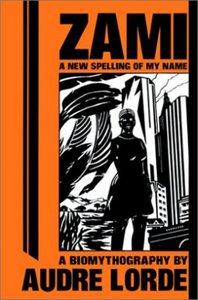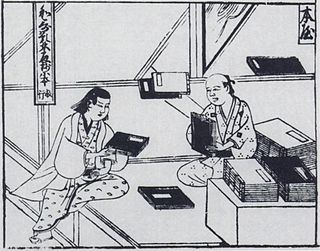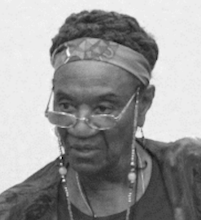Clara Villarosa | |
|---|---|
| Born | 1930 [1] |
| Occupation |
|
| Education | Roosevelt University Loyola University University of Denver |
| Genre | African-American literature |
| Notable works | Down to Business: The First 10 Steps to Entrepreneurship for Women |
Clara Villarosa is an American entrepreneur, author, publisher and motivational speaker. She is the co-founder of Villarosa Media and was the founder of Hue-Man Bookstores in Denver, Colorado and Harlem, New York, one of the highest earning African-American bookstores in the country from the 1980s to the 2010s. Her book, Down to Business: The First 10 Steps to Entrepreneurship for Women was nominated for an NAACP Image Award. Villarosa founded the African American Booksellers Association. [2]
In January 2016, she co-founded Villarosa Media with her daughters, Linda Villarosa and Alicia Villarosa. The company focuses on publishing new books from established black authors and classic books reissued in digital formats with print on demand (POD) capability. Its first published book was The Wind Is Spirit: The Life, Love and Legacy of Audre Lorde. [3] In 2016, she was featured in the film, Dream, Girl . [4]
Born in 1930, Villarosa was raised in Chicago. [1] She earned a bachelor's degree in education and psychology at Roosevelt University and a master's degree in social work from Loyola University. [2] Following her studies, she worked until 1959 as a psychiatric social worker at Mount Sinai Hospital in Chicago before becoming a full-time mother. [5] The family later moved to Denver, Colorado where Villarosa became the chief psychiatric social worker at the Department of Behavioral Science at Denver's Children's Hospital and later director of the department. [5] Villarosa later attended the Graduate School of Social Work Doctoral Program and College of Law at the University of Denver. [5] She worked temporarily as the employee relations manager at the United Bank of Denver during this time and later became Vice president of Human Resources and Strategic Planning. [5]
Villarosa opened the Hue-Man Experience Bookstore in Denver in 1984. [6] After 16 years, Villarosa sold the Denver bookstore in 2000. [6] She moved to New York City and opened the Hue-Man Bookstore & Cafe in Harlem featuring a large collection of books by African-American authors. [7] The store was located near the Apollo Theatre and became the largest African-American bookstore in the country. [8] It hosted events featuring former President Bill Clinton, [9] Terry McMillan, James Baldwin, Colin Powell, Wynton Marsalis, and Toni Morrison. [10] [5] Maya Angelou read at the store's opening. [11]
In January 2016, at the age of 85, she co-founded Villarosa Media with her daughters, Linda and Alicia Villarosa. The company focuses on publishing new books from established black authors and classic books reissued in digital formats with print on demand (POD) capability. Its first published book was The Wind Is Spirit: The Life, Love and Legacy of Audre Lorde. [3]
As of January 2017, Villarosa is on the board of trustees for the University of Denver. [5] Villarosa founded the African American Booksellers Association. [2] She previously served on the boards of Colorado Small Business Development Center, Malcolm X and Dr. Betty Shabazz Memorial and Educational Center, and the New Federal Theatre. [5]

Barnes & Noble Booksellers is an American bookseller with the largest number of retail outlets in the United States. The company operates approximately 600 retail stores across all 50 U.S. states.

Audre Lorde was an American writer, professor, philosopher, intersectional feminist, poet and civil rights activist. She was a self-described "Black, lesbian, feminist, socialist, mother, warrior, poet" who dedicated her life and talents to confronting different forms of injustice, as she believed there could be "no hierarchy of oppressions" among "those who share the goals of liberation and a workable future for our children."

Zami: A New Spelling of My Name is a 1982 biomythography by American poet Audre Lorde. It started a new genre that the author calls biomythography, which combines history, biography, and myth. In the text, Lorde writes that "Zami" is "a Carriacou name for women who work together as friends and lovers", noting that Carriacou is the Caribbean island from which her mother immigrated. The name proves fitting: Lorde begins Zami writing that she owes her power and strength to the women in her life, and much of the book is devoted to detailed portraits of other women.
Kitchen Table: Women of Color Press was an activist feminist press, closely related to the National Black Feminist Organization (NBFO), that was started in 1980 by Barbara Smith, Beverly Smith, and poet Audre Lorde. Beverly Smith and Barbara Smith, and their associate Demita Frazier, had together cofounded the Combahee River Collective (CRC). The Kitchen Table became inactive soon after Audre Lorde's death in 1992. The motivation for starting a press run by and for women of color was that "as feminist and lesbian of color writers, we knew that we had no options for getting published, except at the mercy or whim of others, whether in the context of alternative or commercial publishing, since both are white-dominated."
Founded in Upstate New York in 1978 by Maureen Brady and Judith McDaniel, Spinsters Ink is one of the oldest lesbian feminist publishers in the world. It is currently owned by publisher Linda Hill, who purchased the Spinsters Ink in 2005. Hill also owns Bella Books and Beanpole Books.

The Cancer Journals is a 1980 book of non-fiction by Audre Lorde. It deals with her struggle with breast cancer.
Coal is a collection of poetry by Audre Lorde, published in 1976. It was Lorde's first collection to be released by a major publisher. Lorde's poetry in Coal explored themes related to the several layers of her identity as a "Black, lesbian, mother, warrior, poet."
Una Mulzac was an African American bookseller and founder of the Liberation Bookstore, a prominent African-American bookstore specializing in political and Black Power materials and was located in Harlem.

Diandrea Rees is an American screenwriter and director. She is known for her feature films Pariah (2011), Bessie (2015), Mudbound (2017), and The Last Thing He Wanted (2020). Rees has also written and directed episodes for television series including Empire, When We Rise, and Philip K. Dick's Electric Dreams.
Harlem Writers Guild (HWG) is the oldest organization of African-American writers, originally established as the Harlem Writers Club in 1950 by John Oliver Killens, Rosa Guy, John Henrik Clarke, Willard Moore and Walter Christmas. The Harlem Writers Guild seeks to give African-American writers a platform to present their art in its entirety without censoring their experience of being Black in the United States of America. In addition to publishing works, the Harlem Writers Guild also acts as an organization to promote social change and an entity that hosts events to celebrate and promote their members.

Sister Outsider: Essays and Speeches is a collection of essential essays and speeches written by Audre Lorde, a writer who focuses on the particulars of her identity: Black woman, lesbian, poet, activist, cancer survivor, mother, and feminist. This collection, now considered a classic volume of Lorde's most influential works of non-fiction prose, has had a groundbreaking impact in the development of contemporary feminist theories. In fifteen essays and speeches dating from 1976 to 1984, Lorde explores the complexities of intersectional identity, while explicitly drawing from her personal experiences of oppression to include sexism, heterosexism, racism, homophobia, classism, and ageism. The book examines a broad range of topics, including love, self-love, war, imperialism, police brutality, coalition building, violence against women, Black feminism, and movements towards equality that recognize and embrace differences as a vehicle for change. With meditative conscious reasoning, Lorde explores her misgivings for the widespread marginalization deeply-rooted in the United States' white patriarchal system, all the while, offering messages of hope. The essays in this landmark collection are extensively taught and have become a widespread area of academic analysis. Lorde's philosophical reasoning that recognizes oppressions as complex and interlocking designates her work as a significant contribution to critical social theory.
African-American bookstores, also known as black bookstores, are bookstores owned and operated by African Americans. These stores often, although not always, specialize in works by and about African Americans and their target customers are often African Americans. Although they are a variety of African-American business, African-American bookstores have often been closely tied to radical political movements including Marxism, Black Power, and pan-Africanism. The first documented African-American bookstore was established by the abolitionist David Ruggles in 1834. The first African-American bookstore to open in Harlem was Young's Book Exchange. One of the earliest African-American bookstores to achieve national prominence was Lewis Michaux's African National Memorial Bookstore, which operated in Harlem from the early 1930s to the middle of the 1970s. Michaux's store doubled as a meeting place for black activists, including most famously Malcolm X. The Black Power movement embraced black-owned bookstores in the 1960s and 70s as vehicles for promoting their ideology and creating radical political spaces in black communities across the United States. By the 1990s, African-American bookstores earned significant attention from more politically moderate and business oriented media outlets such as the magazine Black Enterprise. In the 2000s and 2010s, however, as independent bookstores of all kinds declined and bookstores chains and Amazon increasingly sold black-authored books, the number of African-American bookstores declined rapidly, dropping from more than 250 to just over 70.

Linda Villarosa is an American author and journalist who is a former executive editor of Essence magazine. She has worked on health coverage for Science Times. She is also author of several books, and her first novel, Passing for Black, was nominated for a Lambda Literary Award in 2008.
The Free Black Women's Library is an organization that hosts a mobile library based primarily in New York City, and is focused on sharing literature written by Black women. It was founded by the Nigerian American Ola Ronke Akinmowo in Brooklyn in 2015.
![<span class="mw-page-title-main">Mahogany L. Browne</span> American poet[1] curator, writer, organizer and educator](https://upload.wikimedia.org/wikipedia/commons/thumb/0/0e/Mahogany_L._Browne_x_Miami.jpg/320px-Mahogany_L._Browne_x_Miami.jpg)
Dr. Mahogany L. Browne, is an American poet curator, writer, organizer and educator. As of July 2021, Browne is the first-ever poet-in-residence at New York City's Lincoln Center.

The selling of books dates back to ancient times. The founding of libraries in c.300 BC stimulated the energies of the Athenian booksellers. In Rome, toward the end of the republic, it became the fashion to have a library, and Roman booksellers carried on a flourishing trade.
Walter Goldwater was an American antiquarian bookseller, who worked briefly at International Publishers before founding University Place Book Shop in Manhattan, part of "Book Row". He was also a co-founder and publisher of Dissent magazine and a noted tournament chess player.

Gloria Ida Joseph was a Crucian-American academic, writer, educator, and activist. She was a self-identified radical Black feminist lesbian writer who synthesized art and activism in her work. Joseph's scholarship centered race, gender, sexuality, and class. She is known for her pioneering work on Black feminism and her activism on issues concerning Black women across the diaspora, including in the South Africa, Germany, and Caribbean.
Joan Drury was an American novelist, book publisher, book seller, and philanthropist. She owned Spinsters, Ink, a publishing company that focused on books by women, especially those identifying as lesbian. She was the author of a series of mystery novels featuring a lesbian protagonist, Tyler Jones, and owned and operated a bookshop, Drury Lane Books, in Grand Marais, Minnesota. Drury won several awards for her services to publishing as well as for her own writing, including a Lambda Literary Award. She was also a philanthropist who sponsored writers' retreats, and created the National Lesbian Writer’s Award.
Cheryl Allison Boyce-Taylor is a Trinidadian poet, teaching artist, and theatre performer who lives in Brooklyn, New York. Boyce-Taylor has published several full-length poetry monographs including early works As A Woman I Laugh and Cry: Poems, Birthsounds, Rhythms and Other Contractions; five collections of poetry; and an award-winning verse memoir dedicated to her son.